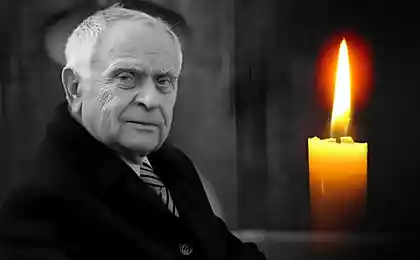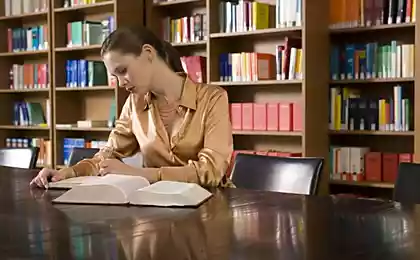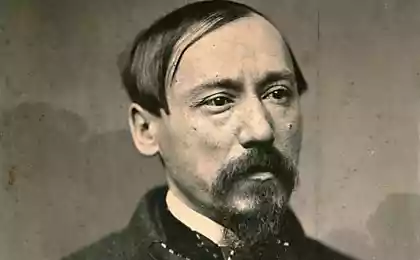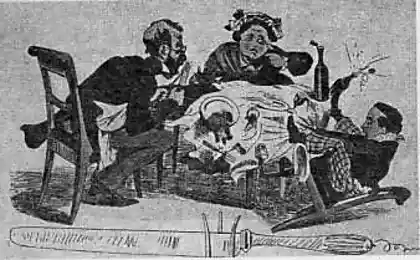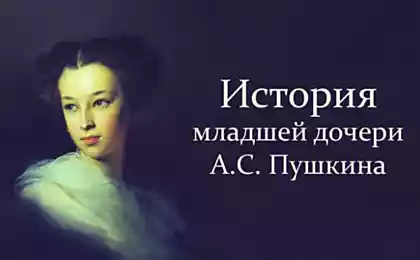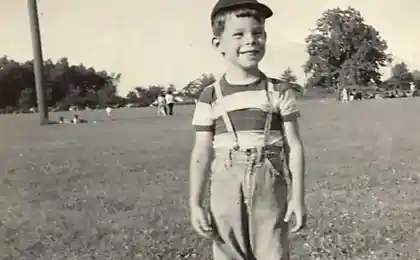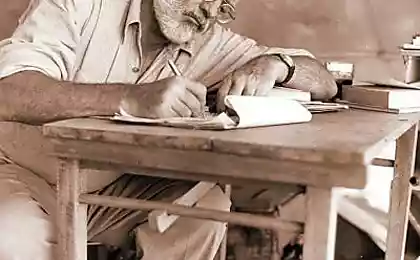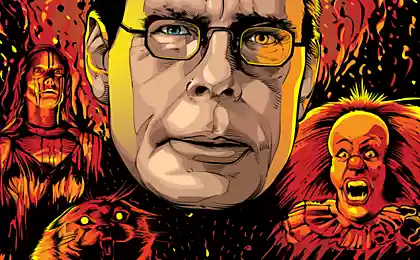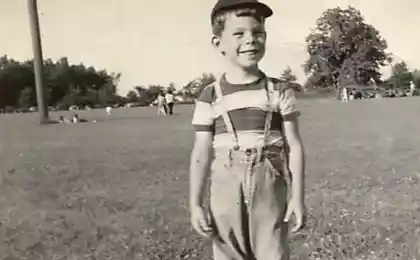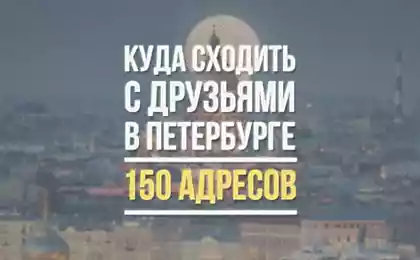462
5 anecdotes "on the occasion" of the poet and writer Lev Rubinstein
Lev Rubinstein is able to pick up the joke, it seems, to almost any situation — and this anecdote to describe this situation succinctly, colorfully and available to everyone. The site is a compilation of anecdotes "on the occasion" of Lev Rubinstein collected online magazine favorites from Facebook and presentations of the author.

Hbr-russia.hikogda I read the cheerful words of Prime Minister Medvedev that every turns out to be a Russian family has a car, I immediately thought of the old, but absolutely, in my opinion, an outstanding anecdote.
Anecdote, I repeat, very old, mid-60-ies, the years when the official propaganda, in contrast to the current, is pressed more and more on the past and for the future.
The future there were no less fantastic than our current "past". But this "future" was even less vulnerable to critical analysis than "the past", since — unlike in the past, it has never been seen.
An anecdote, in General, such.
In the club of a provincial plant is the lecture. The lecture is another "friend of Moscow".
"Comrades! incendiary said the lecturer, — five years from now, comrades, every Soviet family will have their own car!"
A storm of applause.
"And in ten years, comrades," he continues, " each family will have their own plane."
Slight embarrassment. Then a timid voice from the audience asks: "Sorry, not very still understand, why every family needs the plane?"
"Let me explain with an example! — responsible lecturer — for example, You live in Chelyabinsk. And in Novosibirsk, for example, threw the flour..."
The anecdote about the ban of the import of salt from countries that have imposed sanctions against Russia.
Uzbek village. A large festive meal. A lot of people, a lot of pilaf, melons, watermelons, grapes... Eat rice, drink tea, cheerful hubbub.
At some point the most senior at the table, dear elder raises his hand. All respectfully silent, ready to listen.
"My children, — the aksakal speaks, — I want to tell you one wise old parable. I heard it from his grandfather, and he from his. Listen.
The desert is a caravan of camels. Each of them two bags. In one bag of sand in the other — g***o".
And he shuts down.
At the table, a respectful but somewhat puzzled silence. Finally, one of the grandchildren decided to ask: "Grandpa, what's the salt?"
"No salt — meets grandpa. — I said: "the Sand and s***about".
About promises of the head of the Crimea Sergey Aksenov to put everyone who will steal the sand on the beach.
The Armenian radio asked: "What will happen if the Sahara desert will come to socialism?
At first, nothing — meets Armenian radio — And then you start running out of sand.
From the book "Vocabulary":
I also enjoy the questions like: "how long those it will determine how we should live in the country?"
Such questions, as has been said, do not assume answers. Homogeneity and neuroscientist this, I may say, the picture of the world does not tolerate even the slightest exposure to the outside — otherwise she faces total and irreparable collapse.
But one question about the "Rubinstein" I finally answered. And answered with a question. I said, "You will excuse me, what exactly It? About my family, about all my namesakes? Does the number you mentioned Rubinstein of the two brothers who founded respectively in Moscow and St. Petersburg Conservatory? And the famous psychologist Sergey Leonidovich Rubinstein? And the great pianist Arthur Rubinstein? Are you talking about?"
The answer was lapidary: "You know perfectly well who I'm talking about". Yes I understand, I understand — not a little. But don't ask this question, I also could not.
And about the "it" I was immediately reminded of the old joke about the two Siberian men, who have long and intently soared in the bath. At some point one of them broke silence, and said, "it is not Good, Stephen. Oh, not good." "What is wrong, Yegor?" — asked the second. "And that is not good, what are you to my Natalie walk." "Well, you frolovs not understand! Natalia says that is good. You say you're not good."
In an interview on the question of the 90-ies:
About the nineties always remember a very good philosophical joke. A man walks along the street and meets a friend who goes to one boot. And asks him: — what are You, the Shoe was lost? — Why did you lose? Found!
This I mean that all of the nineties were divided into those who are lost and who found. That is one boot was more or less all. But someone had a feeling that he lost the boots, and someone on the contrary. So I just found.
via izbrannoe.com/news/yumor/neskolko-anekdotov-po-sluchayu-ot-lva-rubinshteyna/

Hbr-russia.hikogda I read the cheerful words of Prime Minister Medvedev that every turns out to be a Russian family has a car, I immediately thought of the old, but absolutely, in my opinion, an outstanding anecdote.
Anecdote, I repeat, very old, mid-60-ies, the years when the official propaganda, in contrast to the current, is pressed more and more on the past and for the future.
The future there were no less fantastic than our current "past". But this "future" was even less vulnerable to critical analysis than "the past", since — unlike in the past, it has never been seen.
An anecdote, in General, such.
In the club of a provincial plant is the lecture. The lecture is another "friend of Moscow".
"Comrades! incendiary said the lecturer, — five years from now, comrades, every Soviet family will have their own car!"
A storm of applause.
"And in ten years, comrades," he continues, " each family will have their own plane."
Slight embarrassment. Then a timid voice from the audience asks: "Sorry, not very still understand, why every family needs the plane?"
"Let me explain with an example! — responsible lecturer — for example, You live in Chelyabinsk. And in Novosibirsk, for example, threw the flour..."
The anecdote about the ban of the import of salt from countries that have imposed sanctions against Russia.
Uzbek village. A large festive meal. A lot of people, a lot of pilaf, melons, watermelons, grapes... Eat rice, drink tea, cheerful hubbub.
At some point the most senior at the table, dear elder raises his hand. All respectfully silent, ready to listen.
"My children, — the aksakal speaks, — I want to tell you one wise old parable. I heard it from his grandfather, and he from his. Listen.
The desert is a caravan of camels. Each of them two bags. In one bag of sand in the other — g***o".
And he shuts down.
At the table, a respectful but somewhat puzzled silence. Finally, one of the grandchildren decided to ask: "Grandpa, what's the salt?"
"No salt — meets grandpa. — I said: "the Sand and s***about".
About promises of the head of the Crimea Sergey Aksenov to put everyone who will steal the sand on the beach.
The Armenian radio asked: "What will happen if the Sahara desert will come to socialism?
At first, nothing — meets Armenian radio — And then you start running out of sand.
From the book "Vocabulary":
I also enjoy the questions like: "how long those it will determine how we should live in the country?"
Such questions, as has been said, do not assume answers. Homogeneity and neuroscientist this, I may say, the picture of the world does not tolerate even the slightest exposure to the outside — otherwise she faces total and irreparable collapse.
But one question about the "Rubinstein" I finally answered. And answered with a question. I said, "You will excuse me, what exactly It? About my family, about all my namesakes? Does the number you mentioned Rubinstein of the two brothers who founded respectively in Moscow and St. Petersburg Conservatory? And the famous psychologist Sergey Leonidovich Rubinstein? And the great pianist Arthur Rubinstein? Are you talking about?"
The answer was lapidary: "You know perfectly well who I'm talking about". Yes I understand, I understand — not a little. But don't ask this question, I also could not.
And about the "it" I was immediately reminded of the old joke about the two Siberian men, who have long and intently soared in the bath. At some point one of them broke silence, and said, "it is not Good, Stephen. Oh, not good." "What is wrong, Yegor?" — asked the second. "And that is not good, what are you to my Natalie walk." "Well, you frolovs not understand! Natalia says that is good. You say you're not good."
In an interview on the question of the 90-ies:
About the nineties always remember a very good philosophical joke. A man walks along the street and meets a friend who goes to one boot. And asks him: — what are You, the Shoe was lost? — Why did you lose? Found!
This I mean that all of the nineties were divided into those who are lost and who found. That is one boot was more or less all. But someone had a feeling that he lost the boots, and someone on the contrary. So I just found.
via izbrannoe.com/news/yumor/neskolko-anekdotov-po-sluchayu-ot-lva-rubinshteyna/
10 films about the secret meaning of which you did not know
The guy told me it was a very good joke on the interview. Managers appreciated the joke!

